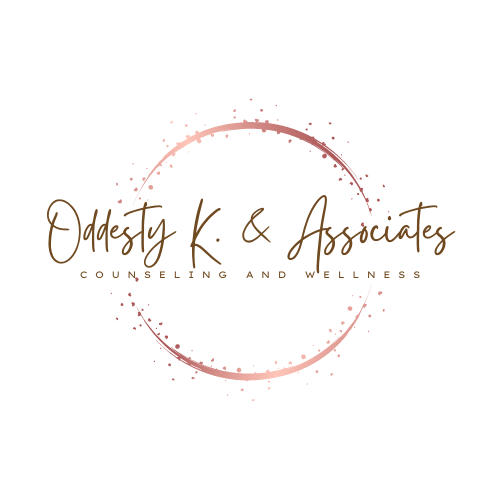Therapy Services.
-

Therapy For Moms
As moms we go through so many life challenges and often find ourselves in positions where we just have to suck it up and keep moving. We often know that we are operating from an unhealthy place, but our busy mom lives hinder us from being able to properly heal and take care of ourselves.
Mental health therapy for moms is a supportive and therapeutic space designed to help mothers manage the emotional, mental, and psychological challenges that often come with motherhood. It addresses issues like:
Postpartum depression and anxiety
Parental stress and burnout
Identity shifts after becoming a parent
Balancing family, work, and self-care
Relationship changes (partner, family, social)
Therapy can offer tools for coping, emotional regulation, boundary-setting, and self-compassion. It may include individual counseling, support groups, or family therapy, and is often tailored to meet a mother’s unique stage of life and parenting journey.
-

Therapy For Women
Therapy can help you find meaning in life and help you to put the pieces of your life back together. It is possible to heal from past hurts and traumas and live the life you desire to live. You can live a life that is not controlled by stress, anxiety and an inability to see yourself as the amazing person that you are.
Mental health therapy for women's issues is focused on addressing the unique emotional, psychological, and social challenges that women may face across different stages of life. This type of therapy supports women in navigating concerns such as:
Hormonal and reproductive health (e.g., PMS, PMDD, infertility, pregnancy, postpartum, menopause)
Body image and self-esteem
Trauma and abuse (including sexual trauma and domestic violence)
Gender roles, expectations, and identity
Work-life balance, caregiving stress, and burnout
Relationship and parenting challenges
Our therapists use approaches like cognitive-behavioral therapy (CBT), trauma-informed care, or mindfulness to help women process their experiences, build coping skills, and develop a stronger sense of self.
-

Therapy For Men
Mental health therapy for men provides a safe and supportive space to explore emotional and psychological challenges while addressing the unique pressures and expectations often faced by men. This type of therapy helps men work through:
Stress, anxiety, and depression
Anger management and emotional regulation
Work-related pressure and performance anxiety
Relationship and family challenges
Grief, loss, or trauma
Societal expectations around masculinity and vulnerability
Therapy can help men develop healthier coping mechanisms, improve communication, and build emotional awareness—often countering the stigma that seeking help is a sign of weakness. It encourages strength through self-awareness and emotional growth.
-

Therapy For Children & Adolescents
Mental health therapy for children and adolescents is designed to help young people understand and manage their emotions, behaviors, and relationships in a safe, age-appropriate way. It supports youth in coping with challenges such as:
Anxiety, depression, or mood swings
Behavioral issues at home or school
Bullying, peer pressure, or social struggles
Trauma, loss, or family changes (e.g., divorce, illness)
Self-esteem, identity, and emotional regulation
Therapists often use creative and developmentally appropriate methods like play therapy, art, or talk-based interventions to build trust and communication. The goal is to help children and teens develop healthy coping skills, build resilience, and improve overall well-being.
-

Equine Therapy
Equine therapy, also known as equine-assisted therapy, is a therapeutic approach that involves interactions between clients and horses to support emotional, behavioral, and psychological healing. Under the guidance of a licensed mental health professional and a trained equine specialist, participants engage in activities such as grooming, leading, and observing horses (not necessarily riding) to promote:
Emotional regulation and self-awareness
Trust-building and relationship skills
Confidence and self-esteem
Processing trauma and managing anxiety or depression
Mindfulness and stress reduction
Horses are highly sensitive to human emotions, making them powerful partners in therapy. Their feedback helps individuals learn about themselves in a nonjudgmental, calming environment.
-

Therapy For Couples
Mental health therapy for couples is a collaborative process that helps partners strengthen their relationship by improving communication, resolving conflicts, and fostering deeper emotional connection. It supports couples in navigating:
Frequent arguments or unresolved conflict
Breakdowns in communication or trust
Intimacy issues (emotional or physical)
Life transitions (parenthood, career changes, loss)
Infidelity or betrayal
Mental health challenges affecting the relationship
A therapist works with both partners to explore patterns, increase empathy, and build tools for healthier interaction, with the goal of improving understanding, connection, and long-term relationship satisfaction.
-

Group Therapy
Mental health group therapy is a supportive therapeutic setting where individuals with similar challenges come together under the guidance of a trained therapist to share experiences, learn coping skills, and support one another. Group therapy can focus on a wide range of issues, including:
Anxiety, depression, or stress
Grief and loss
Trauma and recovery
Addiction or behavioral concerns
Relationship and communication skills
Self-esteem and personal growth
Participants benefit from peer support, reduced isolation, and the chance to learn from others’ perspectives while practicing new skills in a safe environment. Group therapy fosters connection, healing, and personal insight in a collaborative space.
